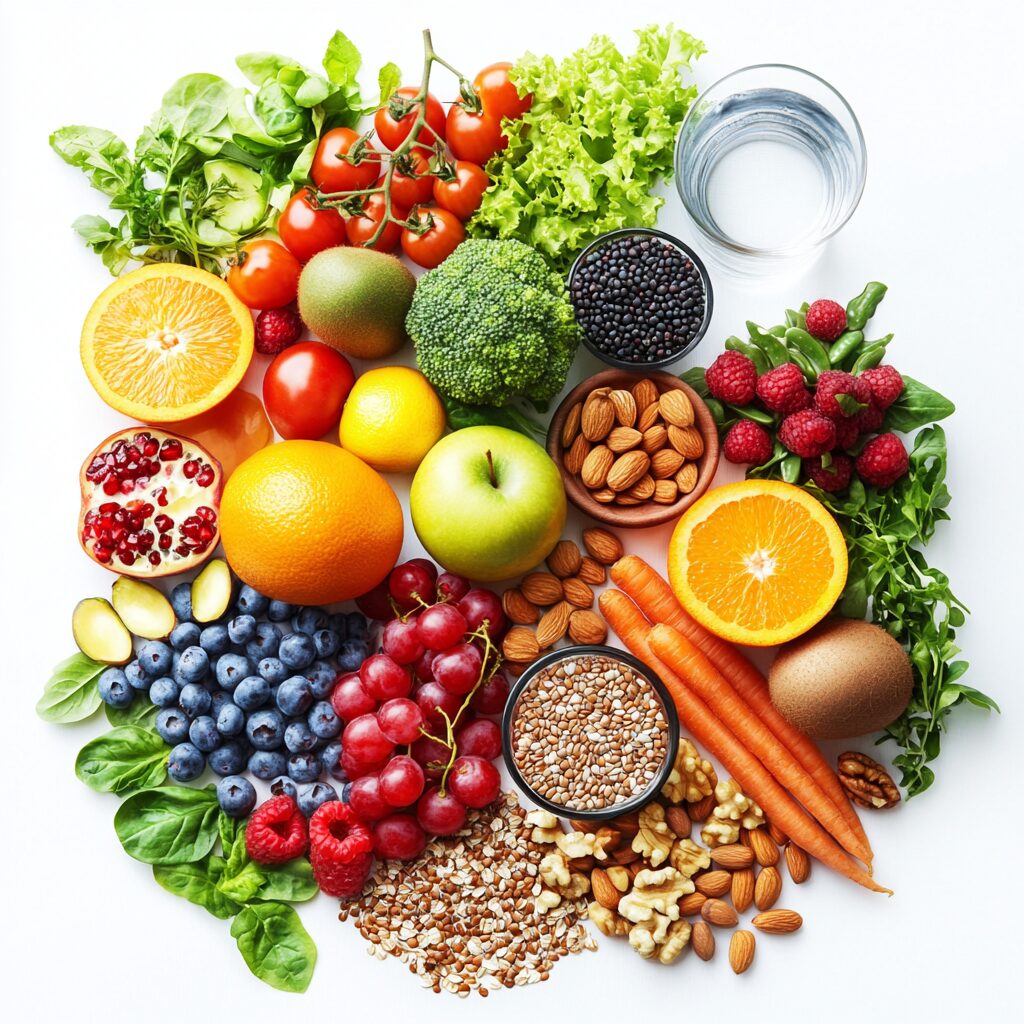The connection between diet and mental health has become an increasingly explored topic in recent years. What we eat not only fuels our bodies but also plays a significant role in shaping our emotional and psychological well-being. A balanced and nutrient-rich diet can promote better mood, mental clarity, and overall emotional stability. On the flip side, consuming unhealthy or nutrient-poor foods might contribute to feelings of anxiety, depression, and fatigue. This interplay between nutrition and mental health underscores the importance of mindful eating habits to support both body and mind. Shall we dive deeper into this fascinating topic?
Food and your mental health
The relationship between food and mental health is a dynamic and impactful one. Our brains, much like the rest of our bodies, require specific nutrients to function optimally. Consuming a balanced diet rich in vitamins, minerals, antioxidants, and healthy fats has been linked to improved mood, enhanced focus, and reduced risk of mental health conditions such as depression and anxiety.
On the other hand, diets high in processed foods, sugar, and unhealthy fats can contribute to inflammation, mood swings, and even a decline in cognitive functions. The gut-brain connection also plays a significant role here—an imbalanced gut microbiome due to poor eating habits can negatively influence mental health.
In essence, what we choose to eat not only shapes our physical health but also lays the foundation for our emotional and psychological well-being. Are you curious about specific foods that can support mental health?
The link between food and mood
The connection between food and mood is a fascinating one, rooted in both science and experience. What you eat has a direct impact on your brain chemistry, which, in turn, influences how you feel. For example, consuming a balanced diet with nutrient-rich foods like fruits, vegetables, whole grains, and lean proteins provides your body with essential vitamins and minerals that support brain health. Certain nutrients, like omega-3 fatty acids found in fish or antioxidants in berries, have been shown to reduce inflammation and promote feelings of well-being. On the flip side, diets high in sugar and processed foods can lead to energy crashes and even contribute to mood swings.
One of the key players in the food-mood connection is serotonin, a neurotransmitter that helps regulate mood, sleep, and appetite. Interestingly, about 90% of your body’s serotonin is produced in your gut. This means that your digestive system and mental health are closely linked. Foods that promote a healthy gut, such as yogurt, kefir, and fibre-rich vegetables, can improve serotonin levels and enhance mood. When the gut is thriving, you’re more likely to feel emotionally balanced and energetic.
In addition to the biological factors, there’s an emotional component to eating. Comfort foods, like a warm bowl of soup or a piece of chocolate, can evoke feelings of happiness or nostalgia due to the associations we have with them. However, relying on emotional eating to cope with stress or sadness may lead to an unhealthy relationship with food. Striking a balance by choosing wholesome foods while occasionally enjoying your favorites is a great way to support both physical and emotional health.

Vital nutrients and foods that have them
The food you eat plays a powerful role in shaping your overall health, including your mood and energy levels. Certain nutrients are particularly vital for supporting mental and physical well-being. Fiber, antioxidants, folate, vitamin D, and magnesium are standout contributors that help with digestion, protect your body from cellular damage, and maintain essential bodily functions like bone health and energy production. Including foods rich in these nutrients in your diet can pave the way for better health and a brighter mood. Let’s explore what these nutrients do and where you can find them!
- Fiber: Supports digestion and gut health.
- Found in: Whole grains (like oats and quinoa), beans, lentils, fruits (apples, pears, and berries), and vegetables (broccoli, carrots, and artichokes).
- Antioxidants: Protect the body from damage caused by free radicals.
- Found in: Berries (blueberries, strawberries), dark chocolate, green tea, nuts, spinach, and brightly colored vegetables (sweet potatoes, carrots).
- Folate (Vitamin B9): Essential for cell growth and production of DNA.
- Found in: Leafy green vegetables (spinach, kale), citrus fruits (oranges, grapefruits), beans, lentils, and fortified cereals.
- Vitamin D: Supports bone health and the immune system.
- Found in: Fatty fish (salmon, mackerel), egg yolks, fortified dairy or plant-based products, and sunlight exposure (your skin produces vitamin D when exposed to sunlight).
- Magnesium: Crucial for muscle and nerve function, as well as energy production.
- Found in: Nuts (almonds, cashews), seeds (pumpkin seeds, chia seeds), whole grains, spinach, and dark chocolate.
These nutrients each play a unique role in keeping you healthy. Are you looking to incorporate more of these into your diet, or is there a specific goal you’re aiming for?

Strategies that can improve your diet and mood
If it’s tricky for you to remember just which foods have the right nutrients, try a mix of these strategies:
- Balance Your Plate: Aim for a mix of whole grains, lean proteins, healthy fats, and plenty of colorful fruits and vegetables. This provides essential nutrients like fiber, antioxidants, and vitamins that support your physical and mental well-being.
- Eat Regularly: Skipping meals can lead to energy crashes and irritability. Try to eat at regular intervals to maintain stable blood sugar levels, which can help keep your mood steady.
- Focus on Gut Health: Since the gut is closely linked to the brain, include foods that promote a healthy gut, like yogurt, kefir, and fiber-rich vegetables. A thriving gut microbiome supports better serotonin production and overall mood regulation.
- Stay Hydrated: Dehydration can affect your concentration and mood. Make it a habit to drink water throughout the day and reduce sugary drinks, which can cause energy spikes and crashes.
- Limit Processed Foods and Sugars: These can contribute to mood swings and sluggishness. Opt for natural alternatives like fruits or nuts when craving a snack.
- Practice Mindful Eating: Slow down and pay attention to your meals—savor the flavors and enjoy the experience. This can help you build a healthier relationship with food and prevent emotional overeating.
- Plan Ahead: Meal planning can help you make healthier choices. Preparing meals and snacks in advance ensures you always have nutritious options on hand, even on busy days.
- Include “Mood-Boosting” Foods: Foods rich in omega-3 fatty acids (like salmon and walnuts), magnesium (like spinach and almonds), and dark chocolate (in moderation) can have positive effects on your mood.
- Practice Moderation, Not Deprivation: Allow yourself to enjoy your favorite treats occasionally. Restricting yourself too much can lead to feelings of frustration, so it’s all about balance.

